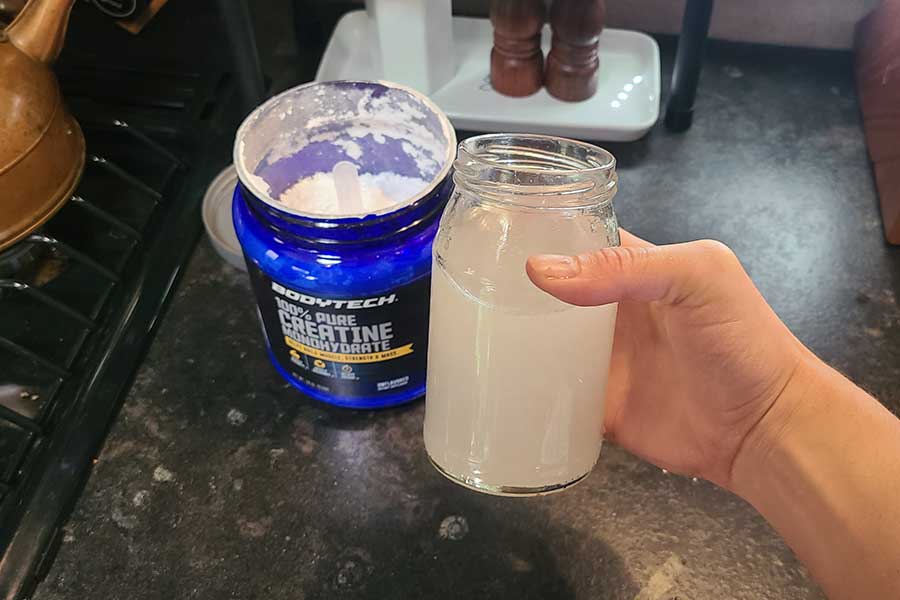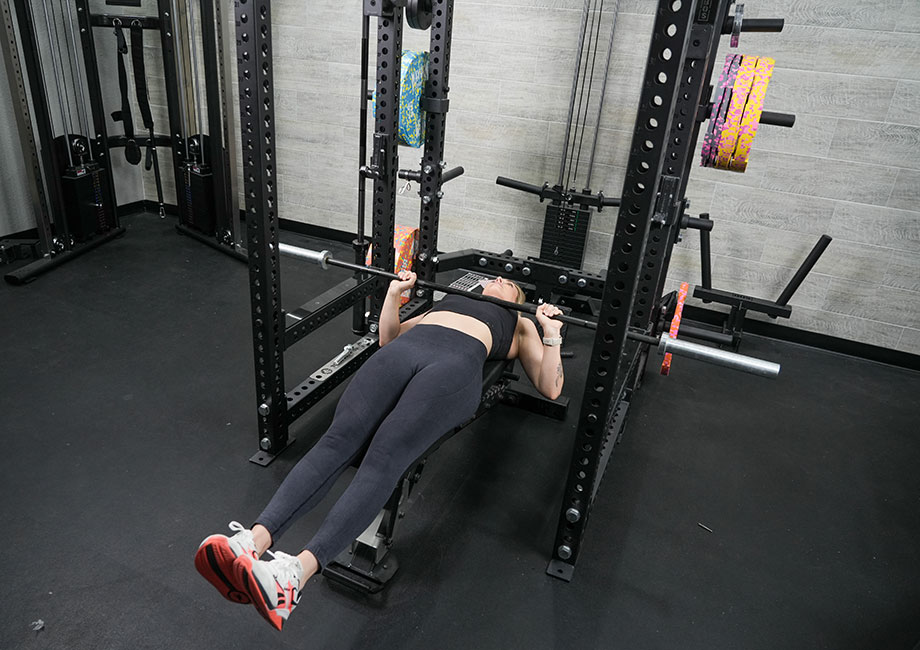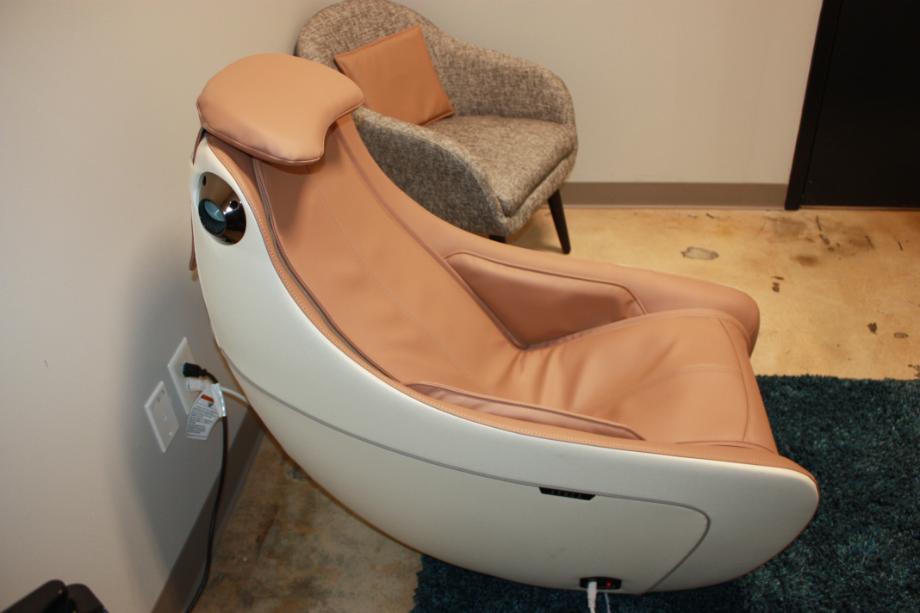If you’re even a little bit familiar with fitness and sports supplements, you’ve heard of creatine at some point. It usually comes up in conversations about muscle growth and enhancement in athletic performance, especially for those who engage in various types of strength training.
Given that steroids are also meant for enhancing muscle growth and athletic performance, it’s easy to assume these compounds are similar, but is creatine a steroid? In this piece, I—a registered dietitian—am here to give you all the info on creatine and steroids. Such as their similarities and differences, how to take creatine to maximize its benefits, and the risks and side effects of both.
RELATED: Best Creatine
Let’s break it all down together!
Medical disclaimer: This article is intended for educational and informational purposes only. It is not intended as a substitute for medical advice. For health advice, contact a licensed healthcare provider.
What Is Creatine?
Creatine is an amino acid compound that is synthesized in the human body naturally by combining the amino acids glycine, arginine, and methionine. It is also present in food, mainly animal protein. Dietary sources of creatine include fish, beef, chicken, and pork. One of the key creatine benefits—when consumed by healthy individuals—is its ability to help synthesize ATP, or adenosine triphosphate, which is a key component in the production of energy.
ATP, or adenosine triphosphate, is the body’s main source of energy1. It is used in almost every body process, from physical performance to more simple functions such as keeping your heart beating.
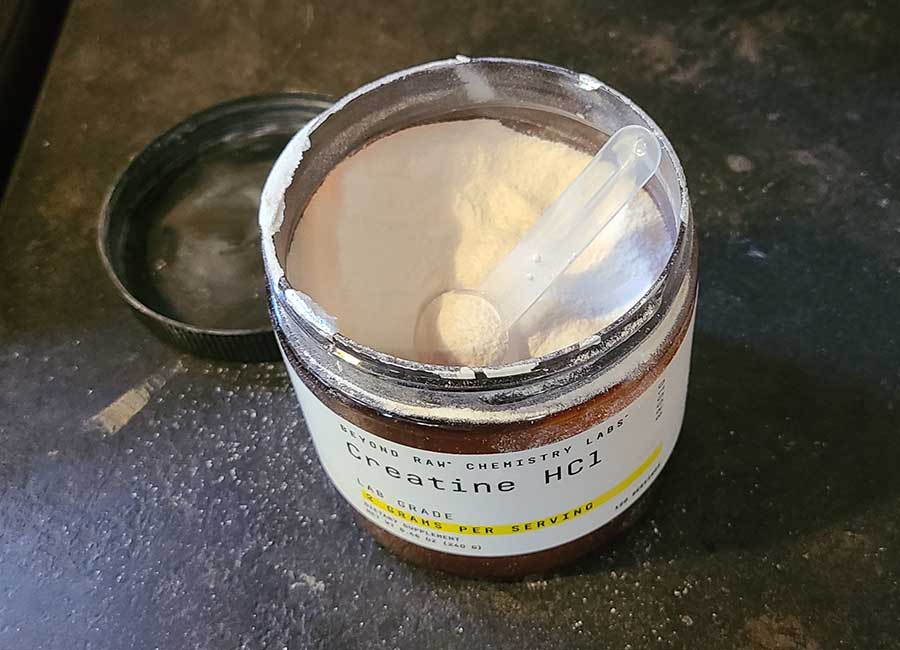
For muscles to use ATP for energy, they remove the phosphate molecule from adenosine triphosphate, which then turns it into diphosphate or ADP. If more energy is to be produced, it’s necessary to convert ADP back into ATP again; otherwise, fatigue can set in. It’s here that good old creatine comes into play.
RELATED: What is Creatine?
When the body’s creatine levels are high, it’s stored in the skeletal muscle and can be converted into phosphocreatine2, which is creatine attached to a phosphate molecule. As long as there is enough phosphocreatine in the muscles, the muscle can use the phosphate molecule to help convert ADP back to ATP again. It’s through this mechanism that creatine supplementation can provide enough energy for the muscles to delay fatigue as well as sustain energy levels during high-intensity exercise.
Supplementing with creatine has been shown in studies3 to contribute to fat-free mass gain, muscle growth, athletic performance enhancement, and favorable body composition changes.
So, why do people take creatine as a dietary supplement instead of getting it through high-protein foods like red meat? It’s because, in order to reap all of these wonderful benefits, science shows you need about 5 grams of creatine4 to get enough of the amount to saturate the body’s creatine levels and, in turn, the muscle cells. It’s pretty difficult to get this amount from food, even on a diet full of red meat. For instance, 4 ounces of chicken or beef contains about 500 milligrams of creatine. This means you’ll need to eat two and a half pounds of these meats in one sitting to get your 5 grams of creatine. That just sounds like a lot of work, not to mention pretty expensive.
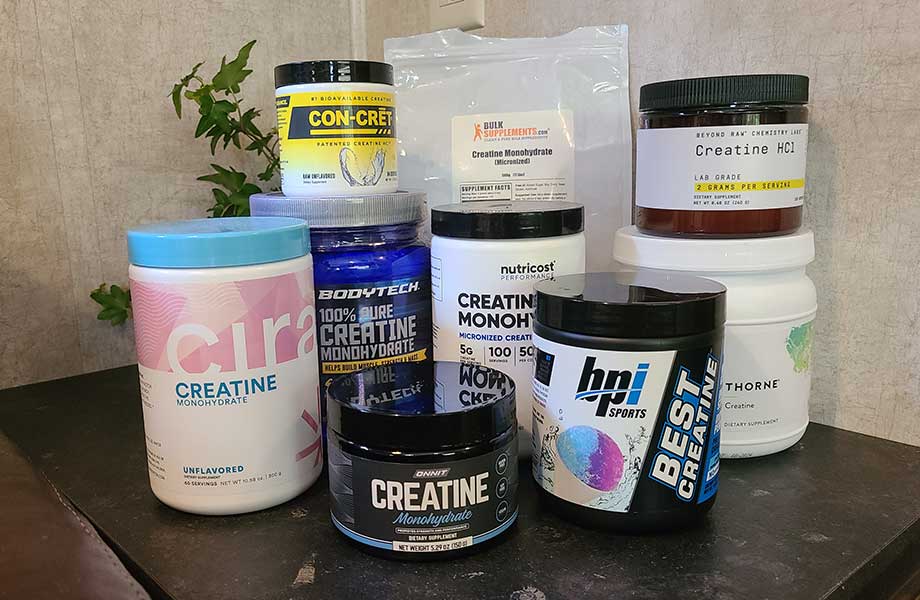
As a dietary supplement, there are many types of creatine, including monohydrate, ethyl ester, and hydrochloride. Most of the studies exploring the positive effects of supplementing with creatine have used monohydrate which also happens to be the most practical and effective form of creatine5 to supplement with. Thus, this is likely the best form to select for use.
What Are Steroids?
The term “steroid” typically refers to an anabolic steroid, which affects the body like testosterone, causing it to be very efficient at growing lean muscle mass, increasing muscle strength, and reducing body weight through fat loss. This is accomplished by steroids in various ways, but the net result is the same: rapid muscle growth due to enhanced protein synthesis, decreased muscle loss, or both.
Although testosterone is the most popular steroid among athletes and bodybuilders, there are a number of others, including:
- Boldenone
- Deca Durabolin
- Dianabol
- Drostanolone
- Methandrostenolone
- Nandrolone
- Oxandrolone
- Oxymetholone
- Stanozolol
- Trenbolone
Different combinations of these compounds are usually used to create steroid “cycles” that serve a variety of purposes. As an example, if you were a competitive bodybuilder looking to add 15 pounds of muscle during your off-season, your steroid cycle would be very different from cutting fat for a competition.
But why do people use steroids when they can just follow a strict diet and exercise regimen? It’s simple, really. You can only build so much muscle naturally, which isn’t perceived as good enough for most bodybuilding contests because of how steep the competition has become. So, the use of anabolic steroids has become common in some circles.
Side Effects of Steroids
Steroids are also pretty well-known for their potential side effects. Research in Sports Medicine6 shows that some side effects of steroid use can be reversed, while others can’t. There are a variety that can be improved, including shrinking of the testicles, acne, cysts, oily hair and skin, elevated blood pressure and levels of “bad” cholesterol, aggression, and lowered sperm counts. Among the irreversible steroid side effects7 are male-pattern baldness, heart dysfunction, liver disease, and breast development.
Liver damage8 is one of the most common and therefore major concerns with anabolic steroid use as it can be permanent and lead to early death in those who use steroids liberally. According to another study, 30% of steroid users develop a dependence syndrome9 after using steroids for a prolonged period of time.
It’s worth noting that none of the side effects listed have been seen in creatine users, even when supplementing long-term. Due to the incredibly unnatural rate at which steroids boost exercise performance and growing muscle mass, its use is banned in most sports.
The FDA has approved anabolic steroids as a medical treatment for conditions like hypogonadism10. However, without a valid prescription, they are illegal to use due to the risk the substance poses for heart disease, reduced kidney function, and liver damage.
So, Is Creatine a Steroid?
No, to put it plainly.
Creatine is commonly misunderstood as an anabolic steroid that’s suitable for bodybuilders only and dangerous to use for everybody else. The International Society of Sports Nutrition11, in spite of these negative misconceptions, considers creatine to be one of the most beneficial sports supplements for athletic performance and body composition, as well as being totally safe for use.
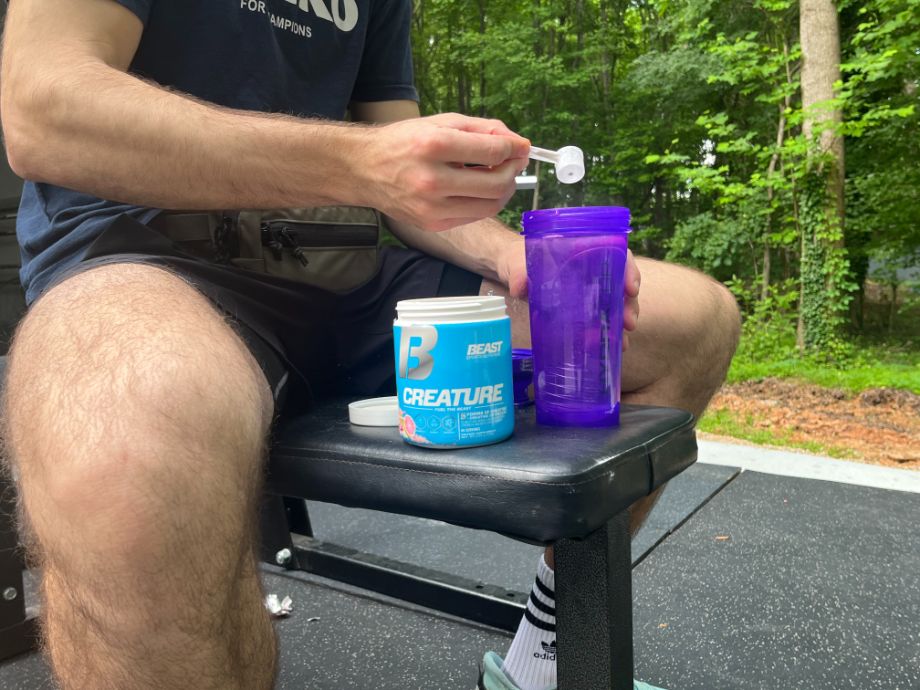
In fact, there was a Molecular and Cellular Biochemistry12 study in which nearly 70 health markers were tested after participants took creatine supplements for 21 months and none of them were found to have any adverse effects.
In the fitness community, creatine is often confused with steroids since both are used, or can at least be referred to, as supplements. In bodybuilding, it’s particularly likely that both creatine and steroids may be used to bulk up or gain more muscle mass. Given the normalized use of anabolic steroids among some competitive bodybuilders along with creatine, it’s easy to see the reason for the confusion.
RELATED: Best Supplements for Muscle Growth
Benefits of Creatine
Here are some of the notable benefits of creatine supplementation:
Aids in Building Skeletal Muscle
For most people, the main motivation for taking creatine supplements is to gain weight and build lean muscle. It has been consistently demonstrated in several studies2 that creatine supports muscle growth. Additionally, your genetics, current level of training, physical fitness, diet, and exercise regimen affect the amount of muscle growth you’ll experience3.
Helps with ATP Production
It has been noted that creatine contributes to ATP synthesis, which can enhance exercise performance. According to a recent study, athletes taking creatine supplementation saw an increase in peak power output13 and overall speed during sprinting of between 4 and 7%, and other studies have shown similar results. If you’re someone who engages in sprinting competitively, you know that even 4% could mean the difference between a gold medal and a bronze.
Aids in Optimal Recovery from High-Intensity Exercise
Creatine has been shown to accelerate muscle recovery and reduce muscle soreness due to its ability to create more energy for muscle cells11. As a result, creatine works to allow you to perform multiple sets of exercise that you might not have been able to perform otherwise due to soreness. Furthermore, it’s believed that the effects of creatine supplementation may help reduce the inflammatory response14, thus reducing the risk of damage to muscles. But, this is still being studied.

May Help Prevent Muscle Breakdown
The effects of creatine supplementation can also help athletes who are recovering from injury. Athletes’ bodies are in an inflammatory state during the healing process, which increases muscle loss. The good news is that creatine supplementation may help prevent the loss of strength and muscle mass after immobilization in otherwise healthy individuals. It has also been shown to mitigate age-related sarcopenia in older adults11.
Great for Vegans and Vegetarians
Vegans and vegetarians likely do not get a consistent dose of creatine from their diet due to the fact that the most creatine is found in animal products such as red meat, poultry, and seafood. In light of these findings, it’s no surprise that vegetarians have lower levels of muscle creatine than omnivores.
Sarcosine and cyanamide15 are often synthesized to create creatine monohydrate, containing no animal by-products. Therefore, supplementing with creatine monohydrate is a good way for non-meat eaters to be able to experience the same sports performance benefits16 as omnivores, without compromising their dietary values.
Should You Do a Loading Phase of Creatine?
By participating in a creatine loading phase, some people can maximize the saturation of creatine in their muscles. To maximize creatine stores, this strategy involves “loading” the muscle cells with large doses of the supplement.
Although the recommended dose of creatine is 5 grams, those who are in the loading phase will often take doses of creatine of 20 to 25 grams for five to seven days and then drop back down to the maintenance dose of 5 grams. There is evidence that this short-term method of creatine supplementation17 is indeed effective, especially for athletes who need to receive the effects of creatine within a few days or weeks, such as for an upcoming competition.
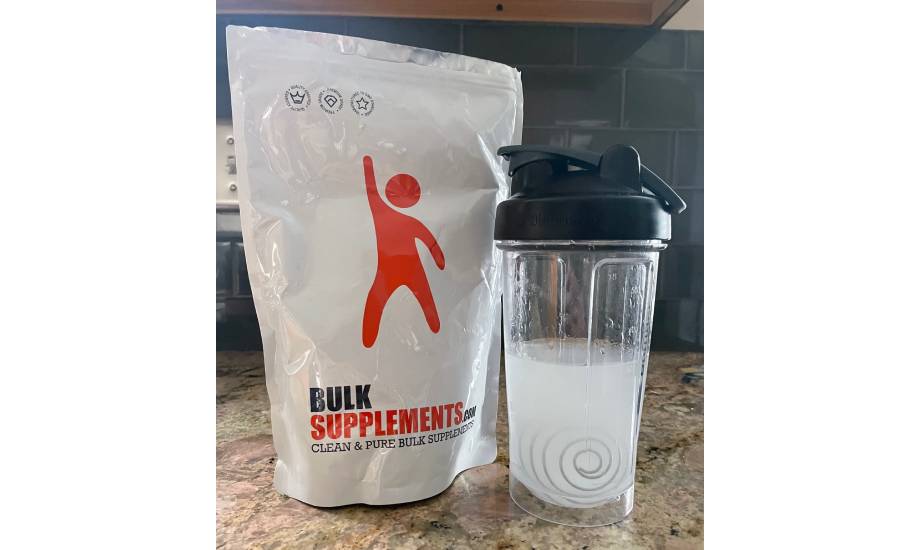
RELATED: How Long Does it Take for Creatine to Work?
Now, a major word of caution here. You don’t want to consume more than 10 grams of creatine at a time during a loading phase, as it can cause stomach cramps and diarrhea. Instead, it’s advised to take 5 grams in the morning and the other 5 grams at night.
Now, after saying all of that, studies have shown18 that whether you go through a loading phase or maintenance phase makes little difference to gains in muscle mass or exercise performance in the long term.
Creatine Side Effects
Now that I’ve gone through the benefits of supplementing with creatine, here are a few of the potential side effects to watch out for.
Bloating and GI Distress
After taking creatine for a few days, some people may experience mild stomach discomfort, but this usually subsides after a few days. When people take creatine, they often report feeling bloated or “swollen” due to water retention19 in the muscle cells. Now, if you’re not competing in a weight loss event or an aesthetic contest where weight or a puffy appearance matter, there should be no need to worry.
RELATED: Does Creatine Make You Bloated?
Dehydration and Muscle Cramps
This is something that’s been a huge misconception for a while now. That said, recent studies have not found that creatine monohydrate negatively affects hydration status. Over 20 years ago, the American College of Sports Medicine published a paper perpetuating the myth that creatine causes dehydration and muscle cramps. The misconception has been debunked by recent studies20, however.
Temporary Weight Gain
Despite its ability to increase muscle mass, creatine has either little or no effect on fat mass, the opposite of its effect on muscle another property that sets creatine apart from steroids).
Despite the fact that creatine is commonly taken to gain weight, this weight is rarely fat tissue but fluid. According to studies, people who start supplementing with creatine can expect to gain 2 to 4 pounds of water weight within a couple of days5.
RELATED: Does Creatine Make You Gain Weight?
Finally, you may have heard that creatine can cause kidney damage, but this is also a creatine myth21. This is, however, yet another negative side effect of long term anabolic steroid use. If you have any concerns about creatine use, consult a healthcare professional before supplementing, especially if you have chronic disease or take prescription medication.
Is Creatine a Steroid? Final Thoughts
So, is creatine a steroid? The answer is a resounding no. Scientifically or chemically, creatine does not belong to the steroid family. While steroids and creatine have similar functions in the body, creatine is much safer, legal for recreational use, and easier to obtain.
Supplementing with creatine—along with a sensible, well-balanced diet and resistance training regimen—won’t accumulate skeletal muscle mass nearly as quickly as with anabolic steroids; however, with some patience and consistency, you can achieve some impressive results without the long-term side effects.
Is Creatine a Steroid? FAQs
Is it safe to take creatine?
The International Society of Sports Nutrition5 has found that creatine is safe for general use, when taken as directed.
What are the negatives of creatine?
Beginners of creatine supplementation may experience negative side effects such as GI distress, headaches, water retention, or weight gain.
RELATED: Creatine Side Effects
Does creatine boost testosterone?
Creatine is not an anabolic steroid and thus does not affect testosterone levels. Creatine functions to alter the body’s energy production systems (or ATP), not hormones.
Is creatine just for bodybuilders?
Creatine can be used by anyone who engages in exercise, be it resistance training, high-intensity interval training, or endurance exercise. It is suitable for people of all gender identities and fitness levels. In fact, creatine has been found to be useful for older adults due to the difficulty this population experiences with maintaining skeletal muscle mass22.
These statements have not been evaluated by the Food and Drug Administration. This product is not intended to diagnose, treat, cure, or prevent any diseases.
References
- Dunn J, Grider MH. Physiology, Adenosine Triphosphate. [Updated 2023 Feb 13]. In: StatPearls [Internet]. Treasure Island (FL): StatPearls Publishing; 2023 Jan-. Available from: https://www.ncbi.nlm.nih.gov/books/NBK553175/
- Wu SH, Chen KL, Hsu C, et al. Creatine Supplementation for Muscle Growth: A Scoping Review of Randomized Clinical Trials from 2012 to 2021. Nutrients. 2022;14(6):1255. Published 2022 Mar 16. doi:10.3390/nu14061255
- Cooper R, Naclerio F, Allgrove J, Jimenez A. Creatine supplementation with specific view to exercise/sports performance: an update. J Int Soc Sports Nutr. 2012 Jul 20;9(1):33. doi: 10.1186/1550-2783-9-33. PMID: 22817979; PMCID: PMC3407788.
- Naderi A, de Oliveira EP, Ziegenfuss TN, Willems MT. Timing, Optimal Dose and Intake Duration of Dietary Supplements with Evidence-Based Use in Sports Nutrition. J Exerc Nutrition Biochem. 2016;20(4):1-12. doi:10.20463/jenb.2016.0031
- Buford, T.W., Kreider, R.B., Stout, J.R. et al. International Society of Sports Nutrition position stand: creatine supplementation and exercise. J Int Soc Sports Nutr 4, 6 (2007). https://doi.org/10.1186/1550-2783-4-6
- Hartgens F, Kuipers H. Effects of androgenic-anabolic steroids in athletes. Sports Med. 2004;34(8):513-554. doi:10.2165/00007256-200434080-00003
- Petrovic A, Vukadin S, Sikora R, et al. Anabolic androgenic steroid-induced liver injury: An update. World J Gastroenterol. 2022;28(26):3071-3080. doi:10.3748/wjg.v28.i26.3071
- Kanayama G, Brower KJ, Wood RI, Hudson JI, Pope HG Jr. Anabolic-androgenic steroid dependence: an emerging disorder. Addiction. 2009;104(12):1966-1978. doi:10.1111/j.1360-0443.2009.02734
- National Institute on Drug Abuse. Anabolic Steroids and Other Appearance and Performance Enhancing Drugs (APEDs), National Institutes of Health. Retrieved October 26, 2023, from https://nida.nih.gov/research-topics/anabolic-steroids#types
- Ganesan K, Rahman S, Zito PM. Anabolic Steroids. [Updated 2023 May 23]. In: StatPearls [Internet]. Treasure Island (FL): StatPearls Publishing; 2023 Jan-. Available from: https://www.ncbi.nlm.nih.gov/books/NBK482418/
- Kreider RB, Kalman DS, Antonio J, et al. International Society of Sports Nutrition position stand: safety and efficacy of creatine supplementation in exercise, sport, and medicine. J Int Soc Sports Nutr. 2017;14:18. Published 2017 Jun 13. doi:10.1186/s12970-017-0173-z
- Kreider RB, Melton C, Rasmussen CJ, et al. Long-term creatine supplementation does not significantly affect clinical markers of health in athletes. Mol Cell Biochem. 2003;244(1-2):95-104.
- Bogdanis GC, Nevill ME, Aphamis G, et al. Effects of Oral Creatine Supplementation on Power Output during Repeated Treadmill Sprinting. Nutrients. 2022;14(6):1140. Published 2022 Mar 8. doi:10.3390/nu14061140
- Cordingley DM, Cornish SM, Candow DG. Anti-Inflammatory and Anti-Catabolic Effects of Creatine Supplementation: A Brief Review. Nutrients. 2022 Jan 27;14(3):544. doi: 10.3390/nu14030544. PMID: 35276903; PMCID: PMC8839648.
- Kaviani M, Shaw K, Chilibeck PD. Benefits of Creatine Supplementation for Vegetarians Compared to Omnivorous Athletes: A Systematic Review. Int J Environ Res Public Health. 2020 Apr 27;17(9):3041. doi: 10.3390/ijerph17093041. PMID: 32349356; PMCID: PMC7246861.
- Wax B, Kerksick CM, Jagim AR, Mayo JJ, Lyons BC, Kreider RB. Creatine for Exercise and Sports Performance, with Recovery Considerations for Healthy Populations. Nutrients. 2021;13(6):1915. Published 2021 Jun 2. doi:10.3390/nu13061915
- Yáñez-Silva, A., Buzzachera, C.F., Piçarro, I.D.C. et al. Effect of low dose, short-term creatine supplementation on muscle power output in elite youth soccer players. J Int Soc Sports Nutr 14, 5 (2017). https://doi.org/10.1186/s12970-017-0162-2
- van Loon LJ, Oosterlaar AM, Hartgens F, Hesselink MK, Snow RJ, Wagenmakers AJ. Effects of creatine loading and prolonged creatine supplementation on body composition, fuel selection, sprint and endurance performance in humans. Clin Sci (Lond). 2003 Feb;104(2):153-62. doi: 10.1042/CS20020159. PMID: 12546637.
- Powers ME, Arnold BL, Weltman AL, Perrin DH, Mistry D, Kahler DM, Kraemer W, Volek J. Creatine Supplementation Increases Total Body Water Without Altering Fluid Distribution. J Athl Train. 2003 Mar;38(1):44-50. PMID: 12937471; PMCID: PMC155510.
- Dalbo VJ, Roberts MD, Stout JR, Kerksick CM. Putting to rest the myth of creatine supplementation leading to muscle cramps and dehydration. Br J Sports Med. 2008;42(7):567-573. doi:10.1136/bjsm.2007.042473
- Antonio J, Candow DG, Forbes SC, Gualano B, Jagim AR, Kreider RB, Rawson ES, Smith-Ryan AE, VanDusseldorp TA, Willoughby DS, Ziegenfuss TN. Common questions and misconceptions about creatine supplementation: what does the scientific evidence really show? J Int Soc Sports Nutr. 2021 Feb 8;18(1):13. doi: 10.1186/s12970-021-00412-w. PMID: 33557850; PMCID: PMC7871530.
- Candow DG, Forbes SC, Chilibeck PD, Cornish SM, Antonio J, Kreider RB. Effectiveness of Creatine Supplementation on Aging Muscle and Bone: Focus on Falls Prevention and Inflammation. J Clin Med. 2019 Apr 11;8(4):488. doi: 10.3390/jcm8040488. PMID: 30978926; PMCID: PMC6518405.


